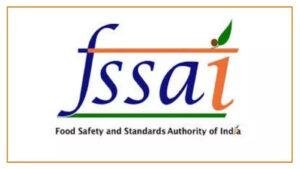
Why in News?
- Food vendors and consumers have been requested by food regulator FSSAI to cease using newspapers for food packaging, serving, and storage as soon as possible, due to the severe health concerns involved.
- The Food Safety and Standards Authority of India (FSSAI) collaborates closely with state food authorities to oversee and implement relevant rules.
- Newspaper ink contains a variety of bioactive substances that are known to be harmful to health and can contaminate food, resulting in health problems when consumed.
- Furthermore, printing inks could include substances like lead and heavy metals that, over time, could contaminate food and pose major health hazards.
- Newspapers are frequently distributed in a variety of environmental settings, which increases their risk of contamination by bacteria, viruses, or other pathogens that could possibly contaminate food.
All About FSSAI
- The Food Safety and Standards Act of 2006 established the independent statutory authority known as FSSAI.
- The Prevention of Food Adulteration Act of 1954, the Fruit Products Order of 1955, the Meat Food Products Order of 1973, and other legislation pertaining to food that were formerly under the purview of several ministries and departments are all combined into one act under the Act of 2006.
- The Act also intends to replace multilevel, multi-departmental control with a single chain of command, so creating a single point of reference for all issues pertaining to food safety and standards.
- Operating under the Ministry of Health & Family Welfare, FSSAI is in charge of regulating and overseeing food safety and quality in India in order to safeguard and promote public health.
- With regional offices located in eight different regions of the nation, FSSAI is headquartered in New Delhi.
- The FSSAI’s CEO and Chairperson, who is chosen by the national government. The Chairperson has the position of Secretary in the Indian Government
Functions and Powers
- Creating guidelines and standards for food additives and products: Responsible for establishing clear guidelines and standards regarding the use of additives and the production of various food products. These standards ensure that food items meet specific safety and quality requirements before they reach consumers.
- Providing food establishments with licenses and registration: Regulating the licensing and registration of food establishments, including restaurants, food processing units, and manufacturing plants. This process involves verifying compliance with food safety regulations and ensuring that these establishments meet the necessary hygiene and quality standards.
- The application of rules and laws pertaining to food safety: Enforcing various rules and laws related to food safety to ensure that food businesses adhere to established standards. This includes monitoring food production, distribution, and sale to prevent the sale of unsafe or adulterated food items.
- Keeping an eye on the quality and safety of food: Conducting regular inspections and quality checks to monitor the safety and quality of food available in the market. This involves testing food samples for contaminants, pathogens, and other harmful substances to safeguard public health.
- Carrying out scientific studies and risk assessments about food safety concerns: Conducting scientific research and risk assessments to identify and address emerging food safety concerns. This proactive approach helps in developing preventive measures and regulatory policies to mitigate potential risks to consumers.
- Educating people about food safety and cleanliness: FSSAI plays a crucial role in raising awareness about food safety and promoting good hygiene practices among consumers, food handlers, and food businesses. This includes providing educational resources, conducting training programs, and disseminating information through various channels to encourage safe food handling and consumption habits.
- Endorsing organic and fortified foods: FSSAI promotes the consumption of organic and fortified foods by establishing standards and certification processes for such products. This endorsement helps consumers make informed choices and ensures that these products meet specific quality and nutritional requirements.
FAQs
Q1. FSSAI is established under which rule?
Ans: FSSAI, the regulatory body responsible for ensuring food safety and standards in India, was established under the Food Safety and Standards Act of 2006. This Act consolidated various laws related to food and established FSSAI as the apex authority to regulate and oversee the food safety and standards in the country.
Q2. What is the full name of FSSAI?
Ans: The full name of FSSAI is the Food Safety and Standards Authority of India. This regulatory body operates under the Ministry of Health and Family Welfare, Government of India. FSSAI plays a crucial role in formulating and enforcing food safety standards across the food industry, from production to distribution and consumption.
Q3. FSSAI headquarters situated in which city?
Ans: The headquarters of FSSAI is located in Delhi, the capital city of India. From its central location in Delhi, FSSAI coordinates its activities, including regulatory oversight, policy formulation, and implementation of food safety standards across the nation.
Can you be more specific about the content of your article? After reading it, I still have some doubts. Hope you can help me.